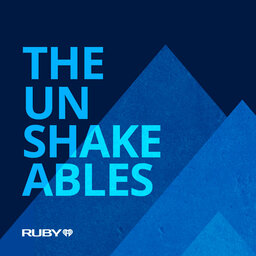Stick to Your Vision: Nerdwax
When Don Hejny toured with big country artists, he had a sweaty problem: his glasses would not stay put on his nose. Annoyed at constantly having to adjust them, he took matters into his own hands. He found inspiration from a childhood tool - surf wax - and after three years of tinkering, NerdWax was born. He took his idea to Kickstarter, then to Shark Tank, then finally to Instagram, when he nearly lost all of his sales to an iOS Update.
Join Ben and Kathleen Griffith as they chat with Don about finding inspiration everywhere, how he was his own best product tester, and how he leveraged his appearance on Shark Tank even though he didn’t take the deal. These are The Unshakeables.
In 1 playlist(s)
The Unshakeables
The Unshakeables podcast dives into inspiring stories from real small business owners across America…Social links
Follow podcast
Recent clips

The Business of Early Detection: Breath Diagnostics
28:17

Inspiring the Future of Manufacturing: CHAMPION Now!
31:23

Succession Planning for Small Businesses: Special Topic
17:02
 The Unshakeables
The Unshakeables